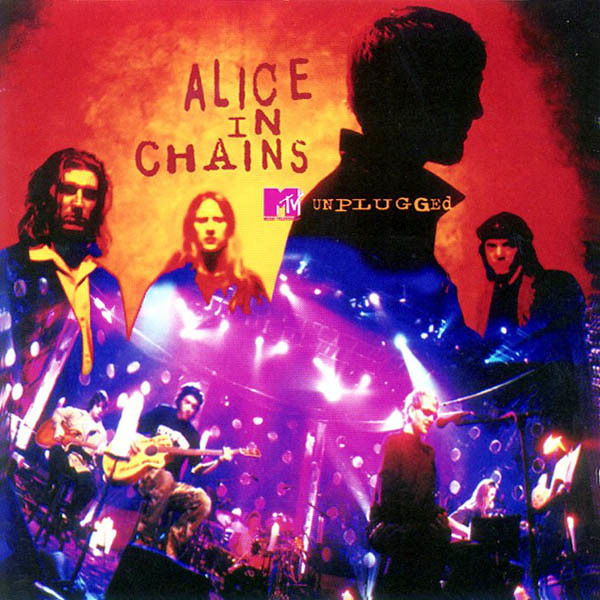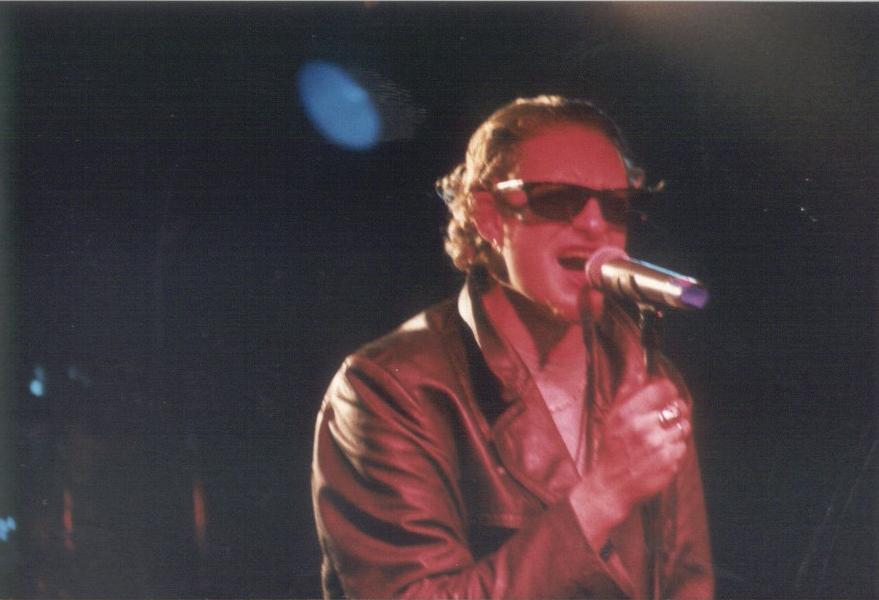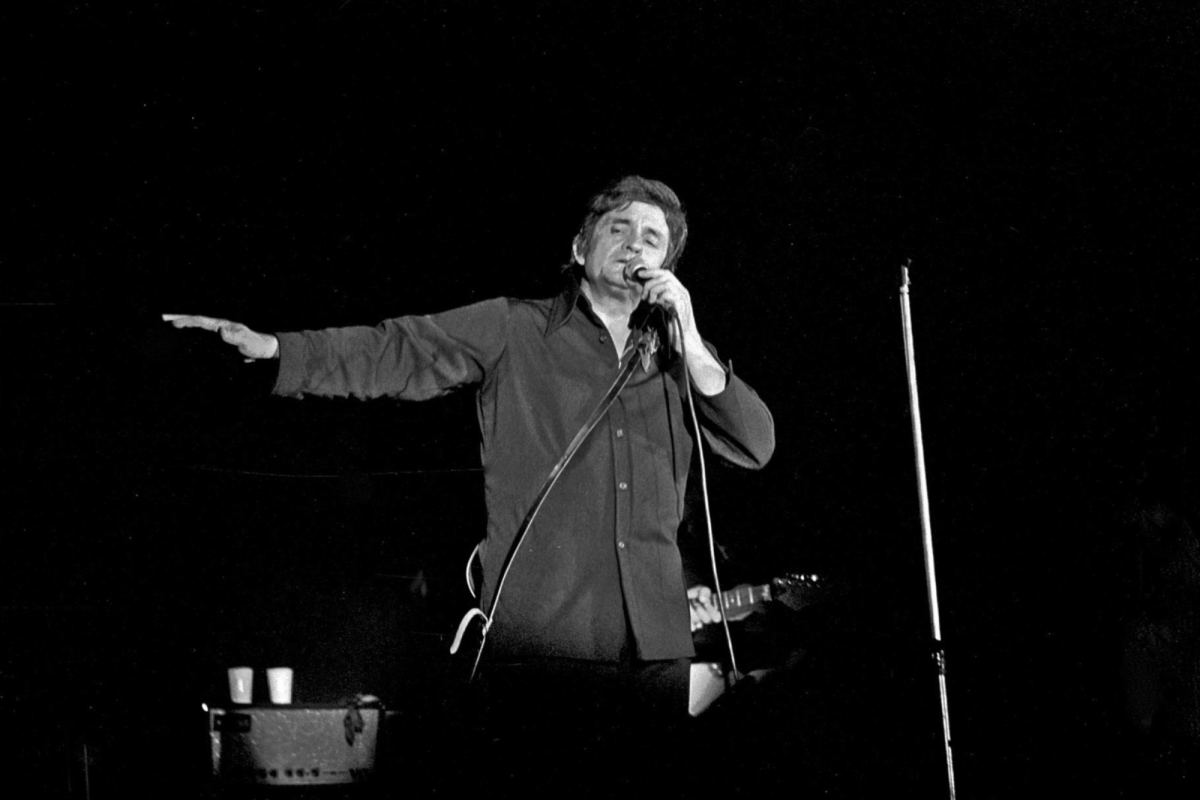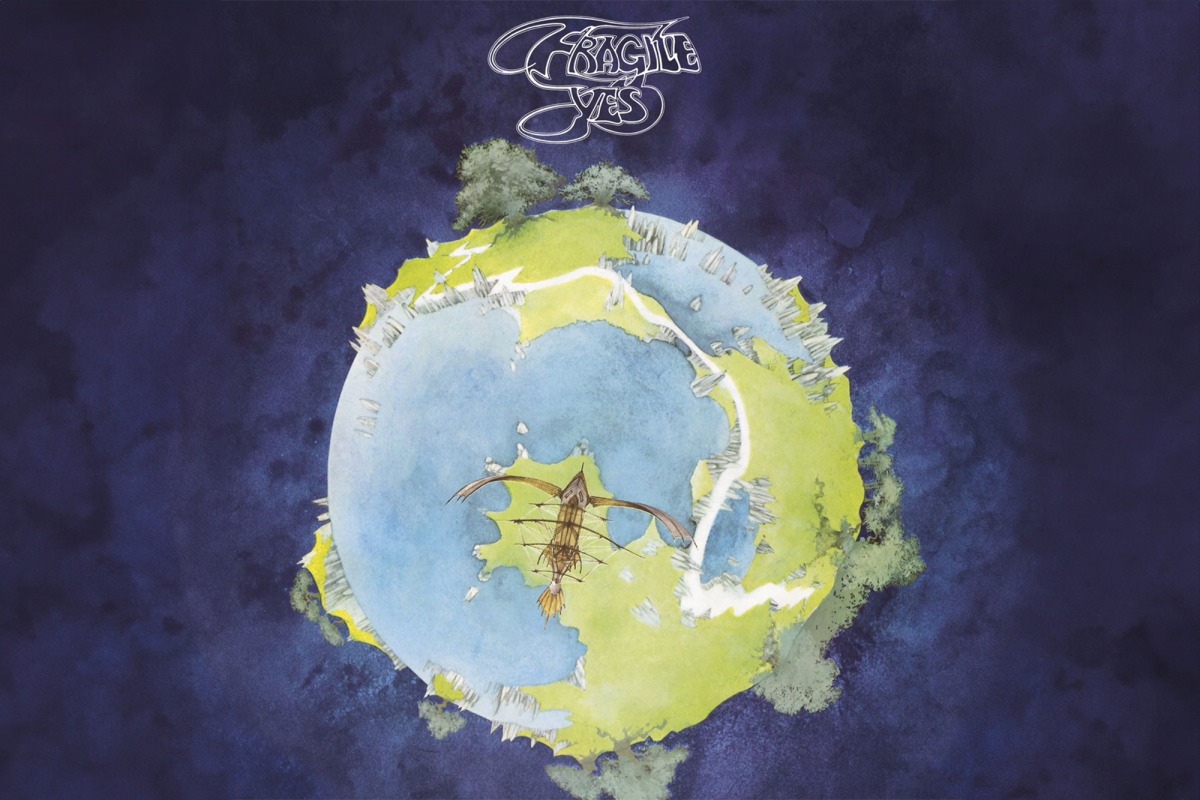

Alice In Chains is a grunge rock band that emerged in the late 80s, originating in Seattle, Washington and started gaining traction and popularity in the early 90s.
The band consisted of four members from 1990-2002; lead guitarist Jerry Cantrell, lead singer Layne Staley, drummer Sean Kinney, and bassist Mike Inez. The band’s debut album Facelift, released in 1990, put them on the radar flowing with the popular grunge sound of the early 90s. Their hit single Man in the Box did numbers on billboard charts which further cemented the unique mix of their signature heavy metal and grunge sound.
Going further into their career, Alice In Chains released their second EP on January 25, 1994, Jar of Flies. Although it did seem to blend in quite well under the rest of their discography, the deeper you look and take the time to dissect the lyrics, you’ll see this EP packs a short but bitter, eye-opening punch. Whether expressing the feelings of succumbing to addiction or tackling a mind-numbing sense of isolation, Jar of Flies covers it all.
This track sets the tone for the whole project, opening with a stringy bass guitar solo mixed with various other instrumental pieces. The instrumental opening bridges us into Staley’s vocals singing the lyrics as follows: “Hey, ah-na-na, innocence is over
Hey, ah-na-na, over.”
“Hey, ah-na-na, ignorance is spoken
Hey, ah-na-na, spoken.”
“Hey, ah-na-na, confidence is broken
Hey, ah-na-na, broken.”
“Hey, ah-na-na, sustenance is stolen
Hey, ah-na-na, stolen.”
“Hey, ah-na-na, arrogance is potent
Hey, ah-na-na, potent, yeah.”
I believe the band is reaching out to the audience as some type of warning to not fall into the pits of addiction. With the lyrics, “Innocence is over” and “Ignorance is spoken,” Staley is exorcizing his innocence to heroin previous to the dependency he then found himself in. For Staley, the more fame and popularity he got, the deeper and darker his addiction to hard drugs and substance abuse became. His confidence is hindered and his sustenance is taken from him the more he gives into the fabricated world of narcotics.
The chorus of this song only backs the opening lines and creates a foundation for Staley’s lyricism throughout the track. The chorus is written below: “What I see is unreal.”
“I’ve written my own part.”
“Eat of the apple, so young.”
“I’m crawlin’ back to start.”
The first line of the chorus opens us up with Staley poking at the reality of where his addiction has taken his mental state. He refers to what he’s seeing under the influence of heroin as “unreal” and otherwise horrific.
We then listen to Staley taking accountability for the grave he’s dug himself in the next line. He seems to be acknowledging that nobody but him is responsible for his crippling addiction but at the same time, it doesn’t seem as though he wants to put in the labor to change his ways.
Once we reach the third strip of the chorus, we listen to Staley compare himself to Adam and Eve in the Bible. In this metaphor, Staley is portrayed as Eve, who was first tempted to eat the apple without knowing the consequences. Staley was deprived of perception and thought of no consequence before sticking his first needle.
Polishing the chorus off, we come to the last line which depicts the pure gut-wrenching feeling that relapsing gives a person. Staley feels hopeless and as if all progress has been lost after he picks up another needle.
The second track of this project is arguably the darkest and most raw piece of art the band has produced. “Nutshell” is the fan favorite on Jar of Flies and one of the band’s most streamed songs of all time. It dives further into the topic of addiction and dependency that “Rotten Apple” left us with. There are just two verses on this track and the first is written as follows: “We chase misprinted lies.”
“We face the path of time.”
“And yet I fight, and yet I fight this battle all alone.”
“No one to cry to, no place to call home.”
The opening line of the first verse cuts deeper into feelings Staley reflects throughout the project of isolation and false social constructs. He searches for meaning in a world full filled with falsehoods and deception. These so-called “misprinted lies” reflect how everyone seems to be chasing public validation only to realize it leaves us drained and empty inside to constantly pursue the media’s distortion.
The second line ties back into the theme of fighting addiction among himself and his fellow band members. Staley felt that dependency on various narcotics would eventually catch up to one of the band’s members given “the path of time.”
Staley tries to psyche himself into believing the issue he was addressing in the last two lines was tied to his band members and himself, yet in the third line of this verse, he admits he feels that he’s fighting this battle of addiction alone. Even though the band stands together to support each other, Staley acknowledges that his addiction is his adversity alone. The last segment of this verse only doubles down on the concept of feeling alienated by having no real outlet to express hardships and rocky emotions. The band as a whole feel they don’t belong anywhere.
A refrain sits between the first and second verses of this track and acts as a break in the action so to speak. As the song progresses into verse two, we hear more distress from Staley on personal struggle rather than the band as a whole: “My gift of self is raped/My privacy is raked.”
“And yet I find, and yet I find repeating in my head/If I can’t be my own, I’d feel better dead.”
Staley expresses that the gift he sees in any one person’s unique qualities and personality is stripped away by addiction and drug use, including his own. He then references his privacy being stolen from him because of the media publicizing Staley’s suffering in the ’90s, some of the information that was spread is fake news.
The second half of the verse is simply referring to the effect that drugs have on your brain and mindset once you begin to rely on them to get through each day. Staley finds himself needing hard drugs to get by, yet once he comes down from the highs they provide him, he feels that he’s a slave trying to escape and find himself.
This track on the EP almost serves as a turning point in the mind of Staley and is the first time on the project that light is shed on the contrasting dark topic matter. After a brief rehabilitation period for Staley, he writes “I Stay Away” as an expression of freedom within himself and his worries. The song opens with a somewhat upbeat instrumental compared to the last two tracks, where we get carried into verse one’s optimistic subject matter: “Yeah, hey, I want to travel south this year/Ah, woah, woah, won’t prevent safe passage here.”
At first glance, there doesn’t seem to be anything special or out of tune with this message, but Staley is trying to convey that he wants to move south from his current lifestyle. He no longer wants to live by the ways of being a crippling addict, let alone an easily influenced rockstar.
The brief first verse swings us right into the strung-out chorus on this track which writes as follows: “Why you act crazy?/Not an act, maybe/So close, a lady/Shifty eyes, shady.”
The chorus opens up with Staley asking a question which could have many different interpretations depending on the context you look at it in. Following the overall theme of this EP, we’ll look at it from the standpoint of addiction. Staley seems to be reflecting on the unpredictable and chaotic nature of human behavior while under any type of drug influence. He expresses that these behaviors are uncontrolled and “not an act.”
The second half of the chorus simply adds to the first conveying a sense of mistrust and disillusionment with someone when having an interaction with them under inebriation from any drug.
Two momentary verses are present on this track which sandwich the first chorus neatly. The second verse is only one line long seen to the right: “Yeah, hey, yeah, tears that soak a callous heart.”
Staley vocalizes his troubleshooting during rehab by being open about his impaired neediness with heroin. He paints a bleak picture of his heart being calloused or otherwise emotionally scarred by drug abuse, but being clean is forcing him to feel foreign feelings which bring him to tears.
For a change, we get insight into Staley’s situation from a fellow band member and long-time friend Jerry Cantrell. Cantrell wrote this song in its entirety for the band to perform, but it also acted as a note for Staley at his lowest, struggling with addiction. Cantrell is heard on the vocals of this song harmonizing with Staley on multiple occasions. The song begins with percussion, and shortly after we are brought to the first verse: “ It’s all right, there comes a time/Got no patience to search for peace of mind.”
“Layin’ low, wanna take it slow/No more hidin’ or disguisin’ truths I’ve sold.”
Cantrell tries to convey a message to Staley in the opening lyrics of this track that it’s okay and normal to experience life without peace and to feel overwhelmed by rough patches in your life. Given that information, the second half of the first verse was written to tell Staley to slow down, take life at a more manageable pace, and stop covering up personal truths and emotional burdens by using drugs as an outlet.
We then get sent to the chorus which pops up three different times throughout this track and also separates each verse: “Every day, it’s something, hits me all so cold.”
“You find me sittin’ by myself, no excuses, that I know.”
Cantrell articulates his feelings on his and Staley’s relationship ever since he’s fallen into the pit of addiction. Every day, Cantrell is hit by a cold, barren feeling of what used to be between him and Staley and how it feels as though Staley is now merely a husk of his old self.
Cantrell feels the need to take a jab at Staley in the second line. Cantrell sits alone in solitude and introspection just as Staley does with his personal issues, but Cantrell never turns to narcotics as a crutch, hence the “no excuses” that Cantrell refers to. He feels betrayed and isolated from Staley, the deeper Staley’s dependency becomes using heroin.
Verse two finds its way back into the perspective of Staley, who is now giving a response to Cantrell in a backhanded way: “It’s okay, had a bad day/Hands are bruised from breakin’ rocks all day/Drained and blue, I bleed for you/You think it’s funny, well, you’re drownin’ in it, too.”
In the first half of the verse, Staley tries to tell himself and Cantrell that it’s okay to use drugs in his current time of need because he “had a bad day.” His hands are bruised from breaking crack cocaine up in his fists to use as a medicinal for his bad day. While utilizing cocaine, he’s drained and blue from speedballing and shooting up heroin simultaneously, which he bleeds for at the needle site.
In the final line of verse two, he takes a jab at Cantrell for being so concerned and judgemental about Staley’s situation. Cantrell doesn’t utilize cocaine or heroin, but at the same time Staley was crutching them, Cantrell used alcohol as an escape from his problems. Staley tells Cantrell he’s “drownin’ in it, too” referencing Cantrell’s alcohol abuse and intoxication.
After another chorus run-through and a guitar solo from Cantrell, we hear the song’s final verse, which features Staley and Cantrell making a pact together with words of reassurance: “Yeah, it’s fine, we’ll walk down the line/Leave our rain, a cold, trade for warm sunshine/You, my friend, I will defend/And if we change, well, I love you anyway.”
Cantrell and Staley tell each other everything will be okay as long as they keep their friendship together and communicate instead of turning to substances. They have each other to cover their backs. They both express wants of sobriety for the other person, leaving the rain and cold (addiction), for warmth and sunshine (sobriety).
The final two lines are expressions of love and care for the other person no matter the circumstances. Both Cantrell and Staley make it known to each other that they are both in each other’s corner despite the hardships and addictions they are currently struggling with.
This track breaks us from the disorientation and blunt feeling of dread and isolation that the previous four tracks painted. It features the band members putting together an instrumental piece of the EP rather than Staley on the vocals. It consists of a mix of electric and acoustic guitars, with the acoustic guitars giving a full chorus effect in contrast to the rest of the project. Although this track includes no vocal pieces, the lachrymose instrumental creates its own faint voice.
This track, like track four, includes Cantrell on the vocals. “Don’t Follow” isn’t the back-and-forth feel that “No Excuses” brought when it comes to the lyricism, but rather a common story shared between Cantrell and Staley as they go down their separate but similar paths into addiction. There are three verses on this track with no chorus or centerpiece. The first two verses are delivered by Cantrell, and the last verse is brought from Staley’s vocals: “Hey, I ain’t never comin’ home/Hey, I’ll just wander my own road/Hey, hey, I can’t meet you here tomorrow, no/Say goodbye, don’t follow/Misery so hollow.”
Cantrell seems fed up with his home life in this passage. He notifies his friends and family back at home that he’s running away and not planning on coming back ever again. Wandering his own road can refer to turning to the bottle to soothe him, as he’s pushing away his loved ones in an attempt to fix his problems. The second to last line in this passage can be viewed from two different perspectives; the first being that Cantrell is asking his loved ones not to follow him as he disappears from their lives. The second point of view can be interpreted as Cantrell warning his loved ones and whoever is listening to not follow his path into a deteriorating alcohol dependency.
This next passage is Cantrell narrating where his life is going after his departure from home life normalities: “Hey, you, you’re livin’ life full throttle/Hey, you, pass me down that bottle, yeah/Hey, hey, you, you can’t shake me ’round now/I get so lost and don’t know how, yeah/And it hurts to care, I’m goin’ down.”
In the first couple of lines of this verse, it seems like Cantrell is enjoying the freedom of not being judged or tied down by any one person. Similar to any other activity that you spend alone, the isolation snowballs into a heavy depression over time. On the surface, Cantrell looks to be having fun and possibly social drinking in bars based on the second line. As he transitions into vocalizing the second half, he comes to terms that he is falling into alcoholism. He begins to feel lost while under the influence, and at the same time he acknowledges the mental despair it’s causing him, yet he doesn’t have it in him to care as he is no longer in contact with the people who want to help him and care for him. Cantrell is descending into a spiral of anguish that only gets deeper the longer he spends his time alone.
Verse three is the final verse of this track which is written below. Staley narrates this section of the song in a more aggressive tone as the instrumental side of the track transitions from the softer-sounding peaceful feel we got when Cantrell was on the vocals, to the gritty, enthralling sound that Staley brings with him: “Ooh, forgot my woman, lost my friends/Things I’d done and where I’ve been/Sleep in sweat, the mirror’s cold/See my face, it’s growin’ old.”
“Scared to death, no reason why/Do whatever to get me by/(Oh) Think about the things I’ve said/Read the page, it’s cold and dead/And take me home (Home)/Yeah, take me home (Home), oh, oh/Take me home (Home)/Take me home (Home), yeah/Take me home (Home).”
Staley lays his struggle out in the open in the first two lines of his verse. “Forgot my woman, lost my friends” spews a direct reference to how his heroin usage has severed the relationship with his fiance and is burning bridges he created with his band members; only when he’s clear-minded and sober does he acknowledge this.
Waking up in a cold sweat of withdrawal, Staley looks at himself in the mirror and no longer recognizes the person staring back at him. He expresses the feeling of his face changing and becoming distorted, aged, and worn through dependency. In a similar context, feelings of paranoia are experienced by Staley when using drugs, but during the high, he’s scared and confused with no concrete reason backing his feelings. He wants to do whatever it takes to get that next feeling of loftiness only quenched by hard drugs.
You can picture Staley reflecting on how he has gotten to this point and how reading into his progress on getting clean and straying away from heroin and cocaine is cold and dead. He seems to recognize that little to no progress is being made by himself to change and reach sobriety. All he wants when he’s away from the needle is the needle, but once his veins get that dose, all he wants is to come back home which is a metaphor for becoming independent from heroin or any hard drug once again.
The closing track on Jar of Flies features a different musical approach than most of the other songs. It’s played in more of a blues style than grunge rock which fits the title’s first word “Swing.” The basis of this song stems from the previous track “Don’t Follow” and acts as a sequel to it keeping the subject matter relevant. There are three verses and a chorus, with the chorus separating each verse. The first verse goes as seen here: “Mother said, “Come home”/Father said, “Come home”/Sister said, “Come home”/And so my friends said, “Come home”/And I said:”
Staley is seen using the “home” metaphor heavily in this song just as he did the previous track. His family members are worried about him and where he’s gone both mentally and physically, telling him to come home.
Not only does his family reach out, but his friends make an effort too, and he responds to them in the chorus: “Let me be, I’m alright/Can’t you see I’m just fine?/Little skinny, okay/I’m asleep anyway.”
Cut and dry, Staley puts on a facade that he’s doing just fine and that if they can’t see how well he’s doing they’re crazy, not him. This act is often used by addicts who want to soothe the minds and worries of their loved ones by saying they are doing well when they’re not.
The last two lines of the chorus depict Staley losing weight and becoming malnourished through the use of heroin. His family and friends take notice of these physical changes but Staley seems to just be shrugging them off like it’s not a big deal. The chorus changes slightly each time it comes up in the song, he will reference that he is “asleep anyway” or “awake anyway” referencing how heroin makes you nod off or come in and out of consciousness.
The chorus is bridged into the second verse through Mike Inez plucking on the bass for a short while before Staley begins to sing these couple of lines: “Then I heard a voice/Said, “Son, you have a choice”/I then slapped my face.”
Staley is not referring to his father speaking to him in this verse, but rather a voice he repeatedly hears while under any sort of narcotic influence. The voice is trying to tell him he has a choice of sobriety and it’s not too late to turn your life around. Nodding off, as aforementioned in the chorus breakdown, he slaps his face to wake up from the trance he finds himself in.
This verse bleeds right into the second chorus block, where some points are added to the chorus we heard in the beginning: “Let me be, I’m okay/I’m awake anyway/It’s too bright over here/I can shift, cannot steer.”
“So I drive them away/For a while, then I stay/Little skinny, okay/I’m awake anyway.”
Now awake while under usage, Staley paints a picture of how it feels to be a struggling addict. He deems it “too bright” as a metaphor for being questioned and having genuine feelings of concern thrown at him by his loved ones. He feels he is in the spotlight and he can’t handle the choice between life or the needle. Perceived thoughts of minimal control over his own actions flood his mind hence why he “can shift, cannot steer” comparing his mind to the partial operation over a vehicle.
Feeling overwhelmed by all the concern and commotion about him, he turns his back on everyone who cares, driving them away. He chooses to stay with the needle in the end.
The final verse of this song is completely backward to what we’ve been hearing this entire track. “Now I have to go home/Do as when in Rome.”
Seemingly reluctant, Staley conforms to the calls and cries he’s been receiving to come home. The final line is a remark about the common saying “When in Rome do as the Romans do” said by Saint Ambrose. It generally is used to suggest adaptation of customs and your surroundings.
We get one more run-through of the chorus before the project makes its way to a guitar solo finale: “Let me be, I’m alright/Can’t you see I’m just fine?/Little skinny, okay/I’m asleep anyway/Let me be, I’m okay/I’m awake anyway.”
This last section of lyrics gives us a bitter taste of Staley’s future overall. Even when he does finally give in to receiving help and voice from his loved ones, he continues to say the same statement of being okay and never actually opens up about his complications. If it’s clear here that support from other human beings won’t pull him out of the deep pit he’s made for himself, he may yield to his addictions and faulty mental state.

Jar of Flies, the second to last project ever made with Staley as the vocalist before he closed off his life and gave into his compulsion of narcotic use. The band released a self-titled album Alice In Chains one year after this project was released. Their self-titled album only shows subtle hints of Staley becoming less and less of himself, before completely dropping music altogether in 1996. After their self-titled album, the band took a fourteen-year hiatus to work on themselves. It seems Staley was doing the exact opposite of that, only falling deeper into the struggles of addiction.
On April 19th, 2002, Staley was found dead at 34 years old in the University District Apartment building located in Seattle, Washington. The Seattle Police Department believes that Staley was dead in his apartment room for two weeks before he was found. According to seattleweekly.com, medical examiner reports showed morphine, codeine, and cocaine in his system, all the while holding another fully loaded syringe of heroin in his hand when he was first found.
Staley lived a life of solitude and isolation, partly by choice, but chiefly due to his dependency on all kinds of hard drugs. He passed away surrounded not by love and support but by his weaknesses and debilitating addictions. He warned the masses through vast musical expression and outlet, yet nobody seemed to listen or grasp just how serious and vivid his lyricism was.
Did you find the lyrics meaningful to you in any way? Are there any lyrics that stuck with you?
(Devin Krueger): “The lyrics in the first song “Rotten Apple” really stand out to me. I feel this is because they are some of the first words said on the project and are used to perfectly set the tone for the whole EP. These lyrics are “Innocence is over”, “Ignorance is spoken”, and “Confidence is broken.”‘
(Justin Bonach): “Yes, I found the lyrics meaningful but not just one stuck with me.”
What track resonates with you the most on this project? Why?
(Devin Krueger): “The track ‘Nutshell’ is what resonates with me the most, I feel that everything goes together perfectly (vocals, drums, and guitar) to create an atmosphere next to no other. I also really enjoy the lyrics of the song. Lines such as ‘We face the path of time’, ‘And yet I fight, and yet I fight this battle all alone’ and ‘Repeating in my head/If I can’t be my own, I’d feel better dead.'”
(Justin Bonach): “‘Nutshell,’ the second track, resonates with me due to the sad nature and beautiful instrumentation on the track.”
What do you think the band was trying to accomplish by creating this EP?
(Devin Krueger): “I feel that Alice In Chains was trying to create a lonely and unforgettable experience with this EP. With the dark and gloomy lyrics, and the chilling atmosphere created by the guitar.”
(Justin Bonach): “I think the band was trying to show the pain that lead singer Layne Staley was going through.”
Do you think this extended play still holds up in quality and production and is worth listening to 30 years later? Why?
(Devin Krueger): “I still feel that this EP holds up today. After listening to the project many times over, it has yet to get boring or stale. The strong, powerful lyrics to the lonely atmosphere it creates allows this EP to still be talked about today.”
(Justin Bonach): “Yes, I think it holds up. It has amazing instruments and the lyrics are still relevant today.”










